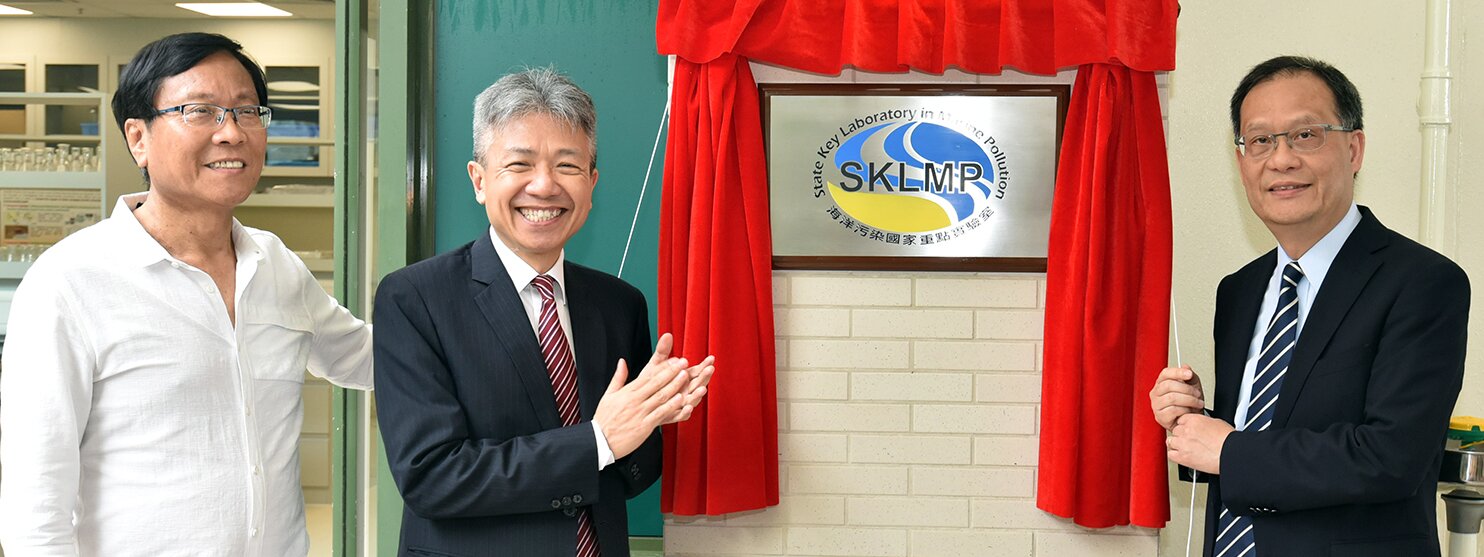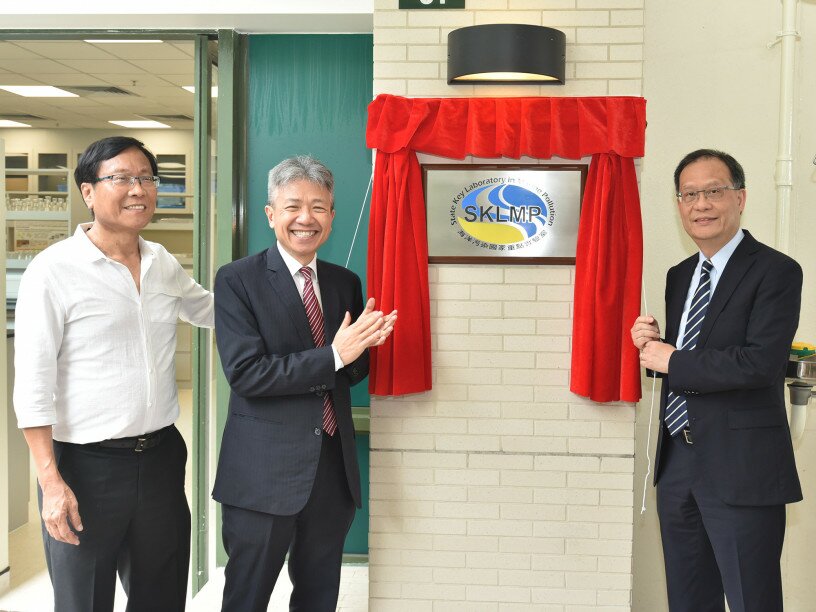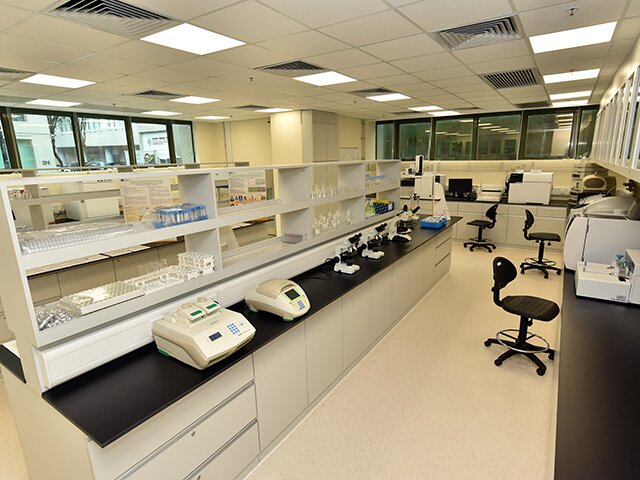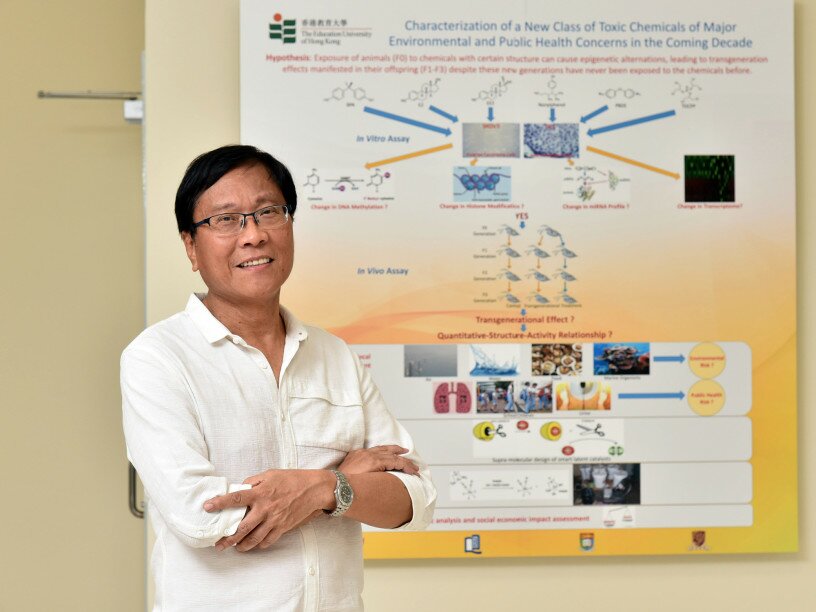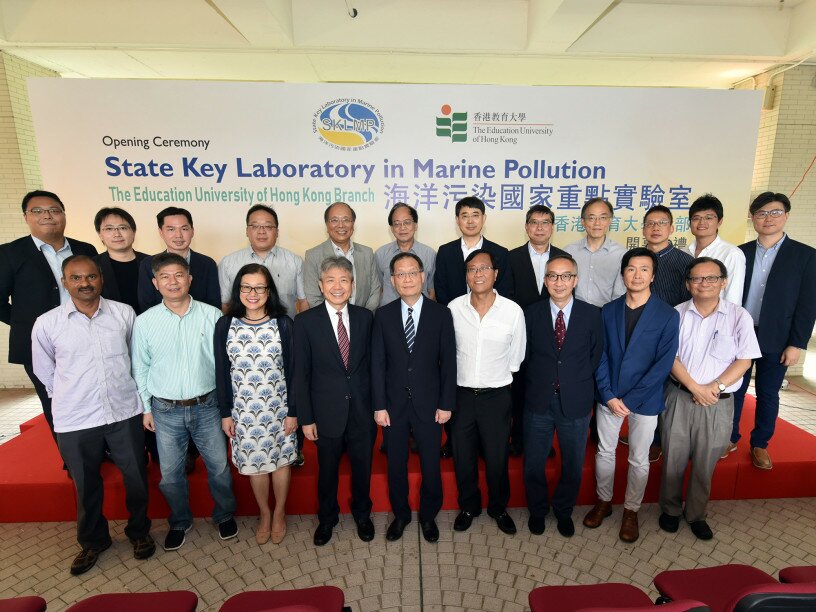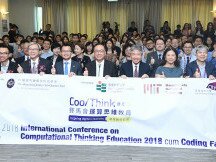EdUHK Joins State Key Laboratory in Marine Pollution as a Member Institution
EdUHK Joins State Key Laboratory in Marine Pollution as a Member Institution
A ceremony was held today (8 June) at The Education University of Hong Kong (EdUHK) to mark the official opening of the first national class laboratory on the EdUHK campus. Established with an investment of over HK$15 million, the State Key Laboratory in Marine Pollution (SKLMP) (EdUHK Branch) will advance research frontiers on marine pollution.
Highly selected by the Ministry of Science and Technology of the People's Republic of China, State Key Laboratories gather top experts in the country to conduct pioneering research, provide professional advice on important national issues, foster technological advancement, and undertake national mega-research projects. As a member institution, EdUHK will make a significant contribution to the mission of the SKLMP by sharing the University’s expertise in marine pollution, complementing that of its sister universities in the SKLMP consortium.
Officiating at the ceremony was Professor Stephen Cheung Yan-leung, EdUHK President, who was joined by Professor Paul Lam Kwan-sing, SKLMP Director and Chief-of-Staff (Vice-President) of City University of Hong Kong, and Professor Rudolf Wu Shiu-sun, Founding Director of the SKLMP and Research Chair Professor of Biological Sciences of EdUHK.
Professor Cheung said, “Environmental studies has been designated one of EdUHK’s strategic areas. Our strength is in adopting a multidisciplinary approach, by encompassing the sciences, social sciences, policymaking and environmental education to tackle complex environmental issues. The establishment of the SKLMP (EdUHK Branch) is a cornerstone of the University’s development in this strategic area.”
Building on the SKLMP platform, world-class experts in the consortium will share their expertise and laboratory facilities, develop long-term collaboration, and tackle serious problems in the marine environment in Hong Kong, the mainland and around the world.
Since 2016, Professor Rudolf Wu has built a research team at EdUHK comprising 12 experts in environmental chemistry, ecology, toxicology, statistics, education and socio-economics, and spearheaded a $3.5 million project to identify endocrine disrupting chemicals, which also have epigenetic and transgenerational effects. His team will further quantify these chemicals in the local population and environment, assess the related environmental and public health risks and socio-economic implications, and develop novel technologies for their in situ detection and removal. “This project will characterise a new class of chemicals that will be a major public health and environmental concern in the coming decades, and will help us take necessary precautionary and preventive measures beforehand,” said Professor Wu. “This forward-looking research is also closely related to the mission of the SKLMP.”




